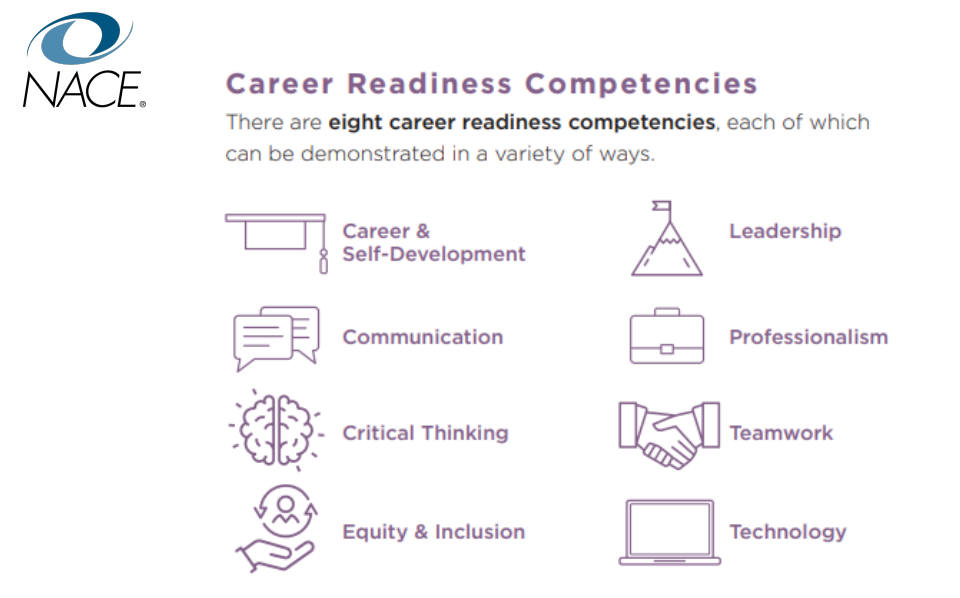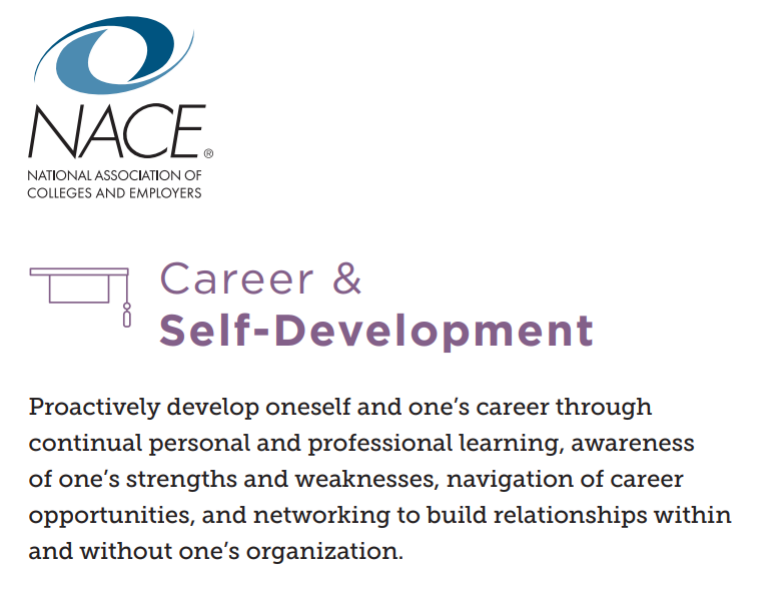
The New Career Readiness
Limitations of Traditional Career Readiness
The more holistic, self-development skills of self-knowledge (I know who I am) and self-efficacy in the context of career management (I know I can adapt) are critical to lifelong career management success. These are included in K12 career readiness standards but are largely missing from higher education career readiness.
Career Readiness Defined
Historically, career readiness has focused on tactical, employability skills such resume writing and interview skills. While these skills are still critical, they are insufficient to prepare college students for jobs in a rapidly evolving job market. If career readiness is limited to these skills, higher education will fail to address the whole person and miss the opportunity to help learners develop the resilience and adaptability needed to navigate complex career decisions over their lifetime.
K-12 education, higher education, and workforce development all define career readiness differently due to their unique objectives and focus areas. K-12 education focuses on building a foundation for career exploration and developing basic skills, while higher education emphasizes major-specific skills, practical experiences, and networking. Workforce development concentrates on job-specific training, upskilling and reskilling, and career guidance.
Career Readiness in Higher Education
For higher education, the National Association of College and Employers (NACE) provides the best, research-based framework for career readiness. They define it as,
“a foundation from which to demonstrate requisite core competencies that broadly prepare the college education for success in the workplace and lifelong career management.”
They have found eight Career Readiness Competencies, along with related behaviors, that are “a set of skills and attributes college students can develop to launch successful professional careers.”
One of the most important, to prepare for accelerating change in the labor market, is Career and Self-Development.
Despite its importance, the Career and Self-Development competency may be left out of professional development programs because many believe that is covered by an institution’s career services. Unfortunately, that is not the case because students may never visit career services or wait until it is too late (senior year). Ideally Career Services, academic advising and professional development programs work hand in hand, also known as integrated career and academic advising.
Even so, the NACE Career and Self-Development competency is still incomplete. While it includes self-knowledge as it relates to “show an awareness of one’s strengths and areas for development,” it does not include attention to self-efficacy and other aspects of “the whole person.” This is a gap that needs to be filled. This is especially true with the barriers students face that impact their ability to make career and education decisions.
Holistic Gap in Higher Education Career Readiness: Well-Being
Because NACE understandably focuses on what employers want, there is no equivalent to academic and career well-being. Employers do not make well-being a requirement in their job postings. The labor market is, after all, an exchange of labor for pay – transactional at its core.
By contrast, in K12 education, overall well-being is baked into its equivalent career readiness framework, where the foundation is the American School Counselor Association (ASCA) Mindsets and Behaviors National Model. The six mindsets school counselors encourage for their students are:
Belief in development of whole self, including a healthy balance of mental, social/emotional, and physical well-being,
Self-confidence in ability to succeed,
Sense of belonging in the school environment and in the larger community,
Understanding that postsecondary education and lifelong learning are necessary for long-term career success,
Belief in using abilities to their fullest to achieve high-quality results and outcomes, and
Positive attitude toward work and learning.
These mindset standards are designed to help students develop a holistic sense of self, build self-confidence, and recognize the importance of lifelong learning and positive attitudes toward work and learning.
K12 and higher education have obvious differences but you can see how college learners still need these foundational ASCA mindsets.
Next, let’s look at how we fill this holistic gap in career readiness at the higher education level.


